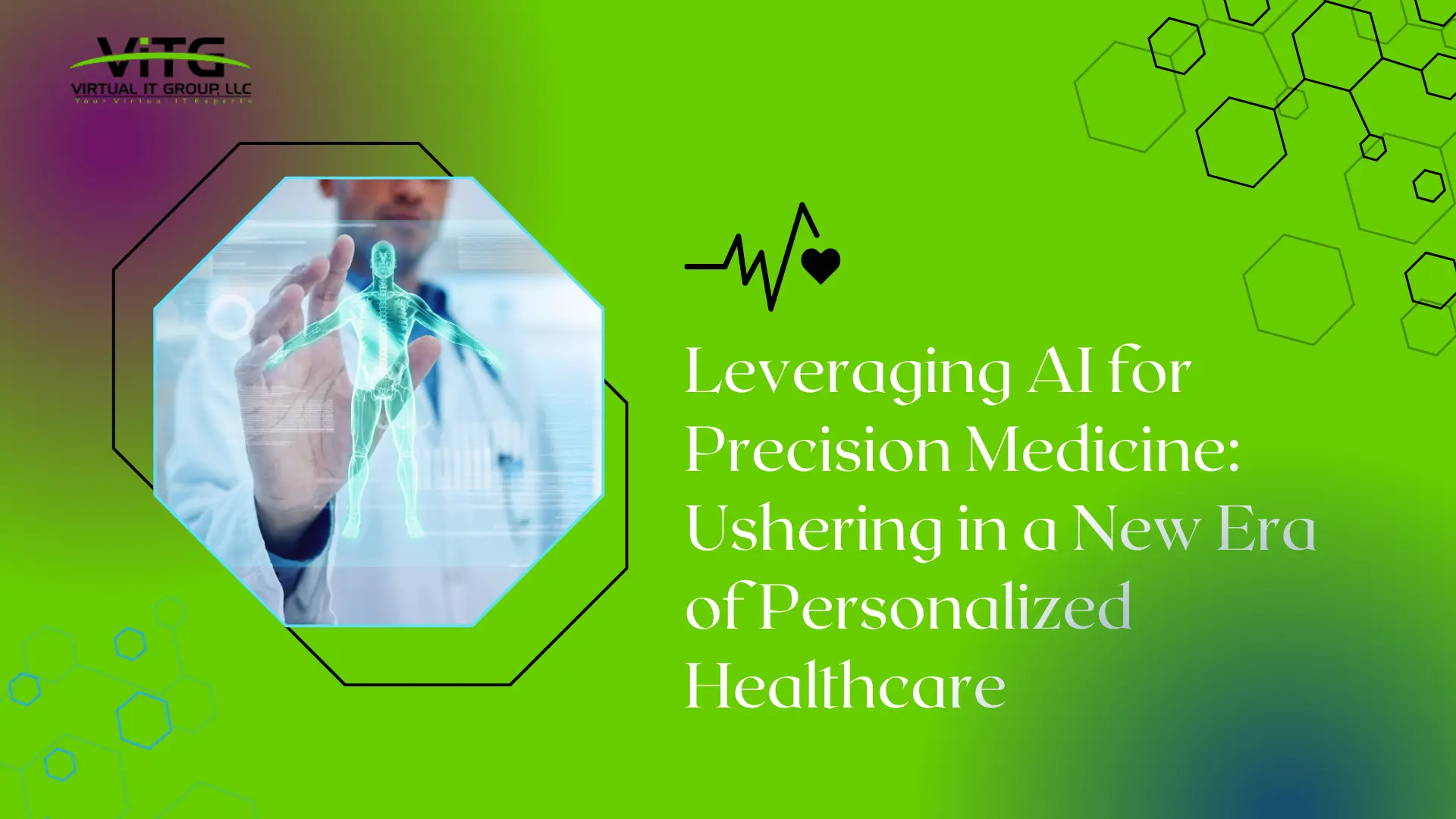The healthcare landscape is undergoing a transformative shift, driven by the integration of artificial intelligence (AI). This powerful technology is poised to revolutionize how we diagnose diseases, develop treatments, and ultimately deliver patient care. At the forefront of this revolution lies precision medicine, a patient-centric approach that tailors healthcare interventions based on an individual’s unique genetic, environmental, and lifestyle factors.
Traditional Healthcare: A One-Size-Fits-All Approach
Historically, healthcare has largely relied on a “one-size-fits-all” approach. This often results in generic diagnoses and treatment plans that may not be fully effective for every patient. This can lead to suboptimal outcomes, unnecessary side effects, and increased healthcare costs.
Precision Medicine: Tailoring Care to the Individual
Precision medicine aims to overcome these limitations by leveraging a patient’s unique biological makeup and medical history to formulate personalized treatment plans. This approach offers several key advantages:
- Improved Diagnostic Accuracy: AI algorithms can analyze vast datasets of medical records, genetic information, and imaging data to identify subtle patterns and correlations that may be missed by traditional diagnostic methods. This can lead to earlier and more accurate diagnoses, allowing for timely intervention. (Source: National Human Genome Research Institute: [invalid URL removed])
- Personalized Treatment Plans: By understanding the underlying causes of a disease at the molecular level, AI can assist in identifying the most effective treatment options for each individual patient. This can lead to more targeted therapies with fewer side effects.
- Drug Discovery and Development: AI can accelerate the drug discovery process by identifying potential drug targets and predicting their efficacy for specific patient populations. This can lead to the development of more effective and personalized medications.
AI Applications in Precision Medicine
AI plays a multifaceted role in precision medicine, impacting various aspects of healthcare delivery:
- Genomic Analysis: AI algorithms can analyze vast genomic datasets to identify genetic variants associated with specific diseases. This information can be used to assess a patient’s risk for developing certain conditions and tailor preventative measures.
- Medical Imaging Analysis: AI-powered image analysis tools can assist healthcare professionals in interpreting medical scans, such as X-rays, MRIs, and CT scans, with improved accuracy and efficiency. This can lead to earlier detection of abnormalities and more timely intervention.
- Electronic Health Records (EHR) Analysis: AI can mine vast amounts of data stored in EHRs to identify patterns and trends that can inform patient care decisions. This allows for the development of personalized treatment plans based on individual medical history and past responses to medications.
Challenges and Considerations
While the potential of AI in precision medicine is significant, challenges remain. These include:
- Data Privacy and Security: The integration of AI in healthcare relies heavily on patient data. Robust data security measures are crucial to ensure patient privacy.
- Algorithmic Bias: AI algorithms can perpetuate existing biases present in healthcare data. Addressing these biases is critical to ensure equitable and fair access to precision medicine benefits.
- Cost Considerations: Developing and implementing AI-powered healthcare solutions can be expensive. Ensuring cost-effectiveness and accessibility for wider patient populations becomes paramount.
The Future of Precision Medicine
Despite these challenges, the future of precision medicine appears bright. As AI technologies continue to evolve and healthcare data becomes more readily available, we can expect to see:
- More Personalized Treatment Options: The development of personalized therapies tailored to specific disease variants and patient characteristics.
- Enhanced Patient Outcomes: Improved diagnosis, treatment plans, and preventative measures leading to better patient outcomes.
- Proactive Healthcare: The ability to identify individuals at risk for developing certain diseases, allowing for preventative measures and early intervention.
Virtual IT Group: Partnering for a Future of Precision Medicine
The integration of AI in healthcare requires a robust and secure IT infrastructure. Virtual IT Group can be your trusted partner in navigating this technological transformation. We offer comprehensive IT solutions, including data security services and cloud computing solutions, to empower healthcare providers to leverage AI in delivering exceptional patient care.
Ready to learn more about how Virtual IT Group can help you unlock the potential of AI for precision medicine? Visit our website to schedule a consultation with our IT specialists.
In conclusion, the integration of AI in healthcare presents a revolutionary opportunity to usher in a new era of personalized medicine. By harnessing the power of AI, we can achieve a future of more accurate diagnoses, targeted treatment plans, and improved patient outcomes.


